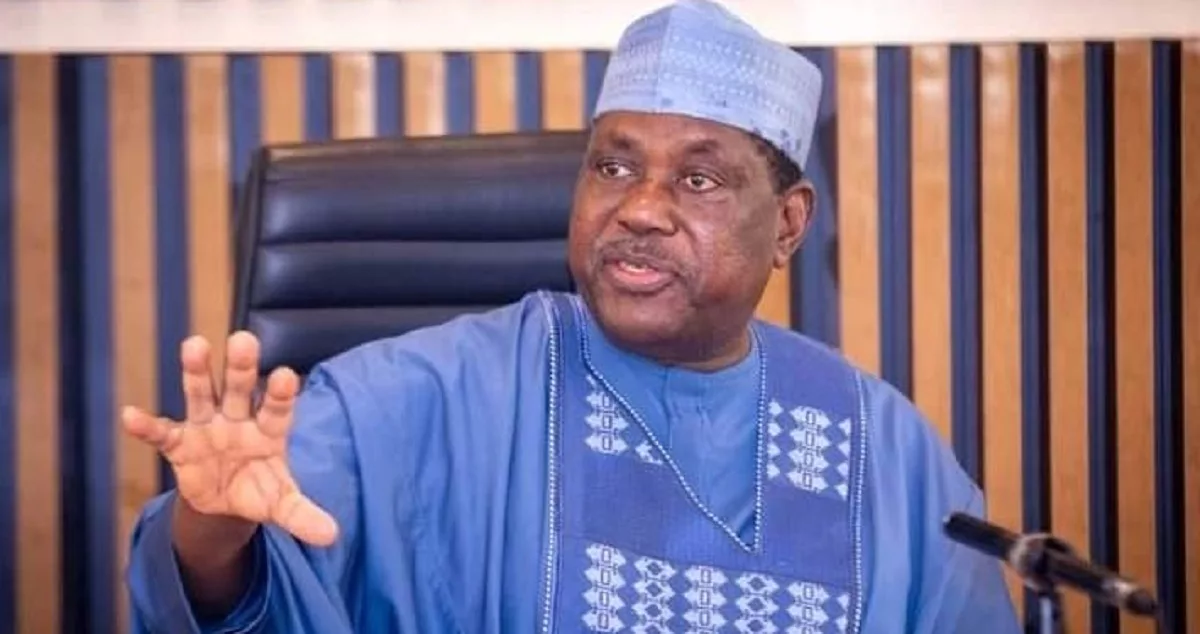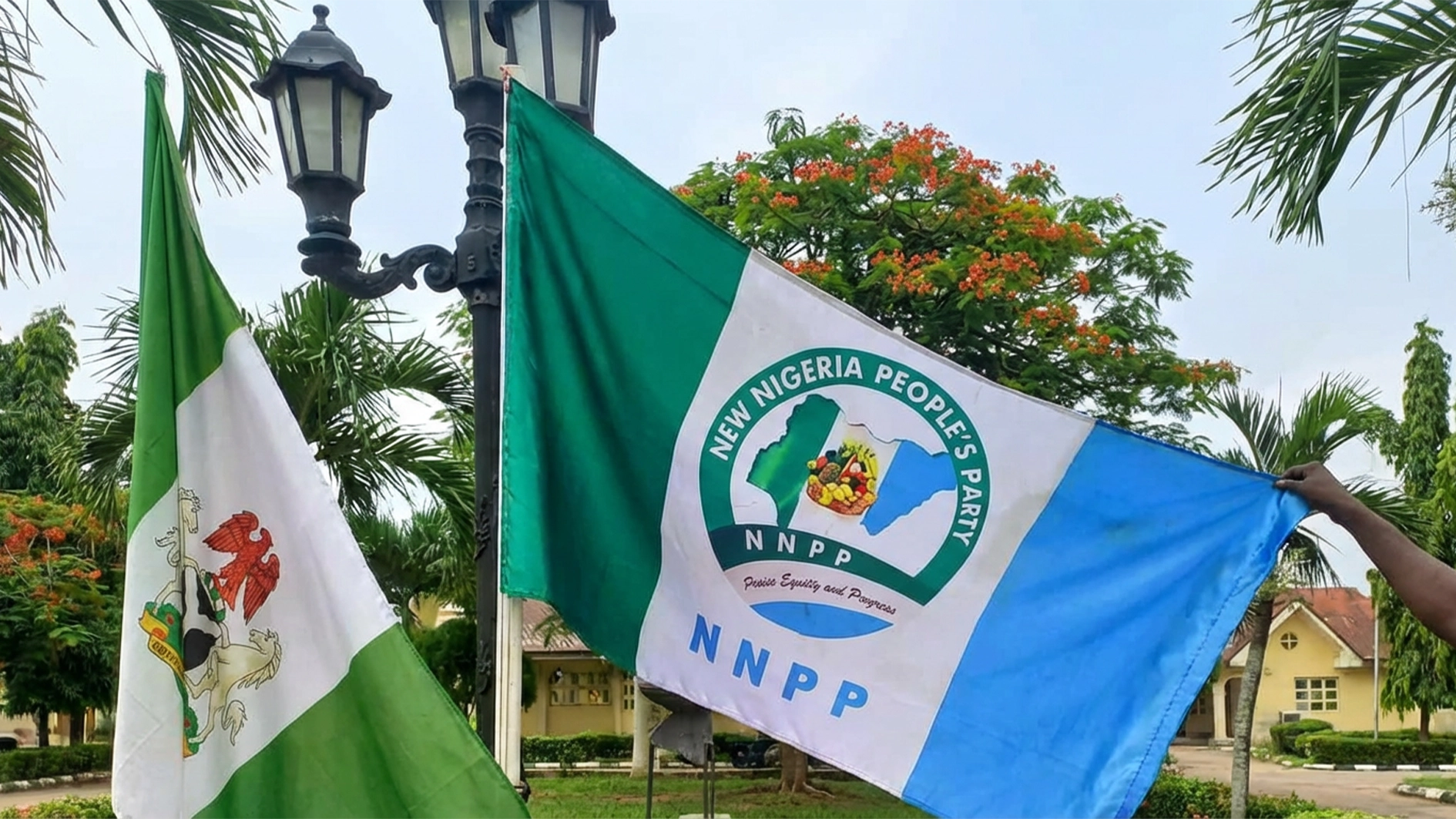• Chamber of Commerce seeks end to unfair tax system in wealth redistribution
• Economist urges institutional discipline, fiscal prudence to tackle poverty
Despite the presidency’s intense rejection of Wednesday’s damning World Bank report that about 139 million Nigerians now live in poverty, stakeholders have expressed concerns about the economic update, highlighting the contradiction that reflects a stark contrast to the much-touted economic growth in the country.
The African Democratic Congress (ADC) yesterday tagged the report as an undeniable verdict, while it urged President Bola Tinubu to accept the reality that the gains of his administration’s reforms have failed to translate into tangible improvements in people’s welfare, evidenced in the World Bank’s October 2025 report, which shows that 139 million Nigerians now live below the poverty line, up from 81 million in 2019.
In a statement signed by its National Publicity Secretary, Bolaji Abdullahi, ADC said the report exposed the wide gap between the government’s rhetoric of economic progress and the lived reality of Nigerians, noting that while the administration celebrates increased revenue and meeting revenue targets, more citizens are slipping into abject poverty at a rate never seen before in Nigeria.
The party also accused the government of masking its domestic economic failures with creative statistics that paint rosy pictures of economic progress while the people continue to suffer.
“The World Bank numbers tell a simple but painful story: under the APC and President Tinubu’s government, more Nigerians have fallen into poverty than at any other time in our history. In 2019, four out of ten Nigerians were poor. Today, it is, at least, six out of ten.
“We recall that President Tinubu, in his recent Independence Day address to the nation, declared triumphantly that ‘the worst is over’ while bandying statistics, which have now been proven to be calculated whitewash to serve the government’s narrative of progress. However, what is important is the reality that those numbers were meant to hide. Behind President Tinubu’s shiny statistics are the grim realities of historic human suffering — families skipping meals, children dropping out of school, and households selling assets just to buy food and basic drugs to survive.”
“The so-called social safety nets that should protect the vulnerable have also collapsed. Coverage has fallen from 20 per cent in 2019 to just six per cent in 2025. Government support to the poorest citizens is almost non-existent, amounting to a mere 0.14 per cent of GDP compared to a global average of 1.5 per cent.
“What all this means is that Nigerians are worse off under the APC and President Tinubu’s government. And contrary to the President’s claim, the worst is not over; instead, it appears that the worst has actually not arrived. The ADC believes that what Nigeria needs now is not cosmetic reform. We need a government that puts the people first and understands that inclusive growth is not just another slogan, it is a conscientious strategy.
“The ADC therefore calls on the Tinubu-led APC government to stop celebrating revenue as achievement and start putting the people first by prioritising food security, job creation, and targeted social protection systems that shield the 139 million vulnerable Nigerians that their ill-thought-out economic policies have created.”
ALSO, ActionAid Nigeria has condemned the widening gap between Nigeria’s reported economic growth and the harsh living conditions of citizens, describing the situation as a “national poverty crisis”.
The Country Director of ActionAid Nigeria, Andrew Mamedu, in a statement yesterday, said poverty still remained widespread despite signs of GDP recovery, adding that “although macroeconomic indicators suggest that Nigeria may be on a path toward recovery with GDP growth rates of between 3.13 and 3.9 per cent, the benefits of such growth have not translated into real improvements in citizens’ livelihoods.”
According to ActionAid, Nigeria’s budget has risen sharply since independence, from about $3.1 billion (N299 billion) in 1999 to $36 billion (N54.9 trillion) in 2025. Yet, poverty rates have also climbed from 42.7 per cent of 123 million Nigerians in 1999 to 52.5 per cent of 230 million people today.
Mamedu highlighted the erosion of workers’ purchasing power, comparing the N125 national minimum wage in 1981—then equivalent to £100—to the N70,000 minimum wage in 2025, now worth only £35.63 at current exchange rates, which shows that the Nigerian worker has lost nearly two-thirds of their earning value since 1981.
The organisation also raised concerns about Nigeria’s reliance on borrowing, citing the World Bank’s expected approval of a $750 million loan to support healthcare, security, and digital infrastructure, while Nigeria’s debt-to-GDP ratio is projected to fall from 42.9 to 39.8 per cent. They warned that poor fiscal accountability and weak transparency could undermine debt sustainability.
It also referenced the U.S. Fiscal Transparency Report 2025, which faulted Nigeria’s procurement system for failing to disclose key information, and Auditor-General reports that exposed contract fraud and procurement irregularities worth millions of dollars, noting that illicit financial flows continue to drain an estimated $18 billion yearly, double Nigeria’s 2025 budget deficit.
Mamedu emphasised that economic growth without human progress signifies policy failure. “When over half the population lives below the poverty line despite trillions spent in the name of development, something is fundamentally broken,” he said, harping on the need for a National Poverty Summit to confront Nigeria’s economic contradictions.
ON its part, the Bauchi State Chamber of Commerce, Industry, Mines and Agriculture (BACCIMA) warned that the nation’s economy is being threatened by the government’s “unfair” tax system, particularly on privately-owned businesses.
It further warned that Nigeria cannot achieve sustainable economic growth under a one-sided system of accountability where only businesses are compelled to comply promptly, while government institutions delay their obligations without consequences.
The Chamber demanded the enforcement of equal standards of timeliness, penalties, and interest in both the public and private sectors. According to BACCIMA, accountability goes beyond financial compliance; it embodies fairness, justice, and the creation of a business environment built on trust and mutual respect.
President of BACCIMA, Aminu Mohammed Danmaliki, said the chamber’s position was not a demand for privilege but a call for balance and fairness. Danmaliki said that: “If businesses are required to meet strict tax deadlines under threat of penalty, then government agencies like the FIRS must also be obligated to fulfill their commitments promptly, with consequences for failure.”
Describing fairness as the foundation of a credible tax system, Danmaliki noted that Withholding Tax (WHT) refunds belong to the private sector until full reconciliation is made.
He explained that the Federal Inland Revenue Service (FIRS) currently enforces a 10% WHT deduction on contract sums to ensure compliance. However, when a company fully meets its tax obligations, the deducted funds are supposed to be refunded, a provision that is rarely respected.
Aminu proposed that WHT funds be held in jointly managed accounts, co-supervised by the FIRS and the Organized Private Sector under the Nigerian Association of Chambers of Commerce, Industry, Mines and Agriculture (NACCIMA). He stressed that Small and Medium Enterprises (SMEs), which make up the majority of service providers, are the worst affected by delayed payments and refunds. According to him, prompt settlement is critical to protect jobs, stabilize businesses, and promote economic growth.
However, Victoria Hauwa-Ibrahim, an economist and public policy expert from Nasarawa State University, Keffi, has urged governments at all levels to demonstrate stronger institutional discipline and fiscal prudence to reduce poverty and improve citizens’ welfare.
Ms Hauwa-Ibrahim said in Lafia on Thursday that Nigeria’s long-term quest for sustainable prosperity depended on consolidating ongoing reforms such as fuel subsidy removal and exchange rate unification with credible governance practices.She warned that failure to back the reforms with institutional accountability and prudent management could place the country at a disadvantage in achieving inclusive development.
The economist, citing data from the National Bureau of Statistics (NBS), said that Nigeria’s real gross domestic product (GDP) grew by 4.23 per cent in the second quarter of 2025, driven largely by the non-oil sector. She, however, noted that beneath the growth figures lay a “sobering reality”, as persistent inflation continued to erode purchasing power and undermine living standards.
“Inflation, though easing to 20.1 per cent in August 2025 from 33.2 per cent in 2024, remains among the highest in Africa. The IMF projects an average of 24 per cent for 2025.
“This means that even as output expands, real incomes continue to fall. Nigeria’s per capita income, at about $835, lags behind South Africa’s $3,000 and Egypt’s $2,200. Population growth continues to outpace job creation,” she said.






